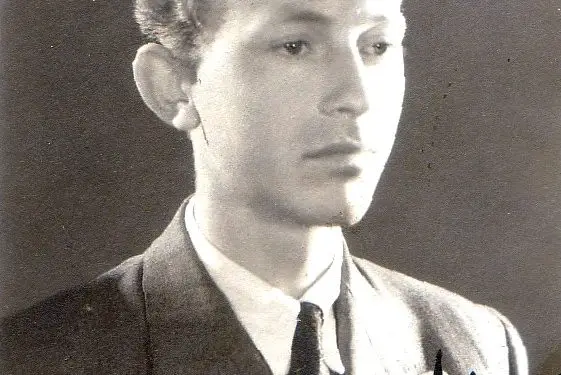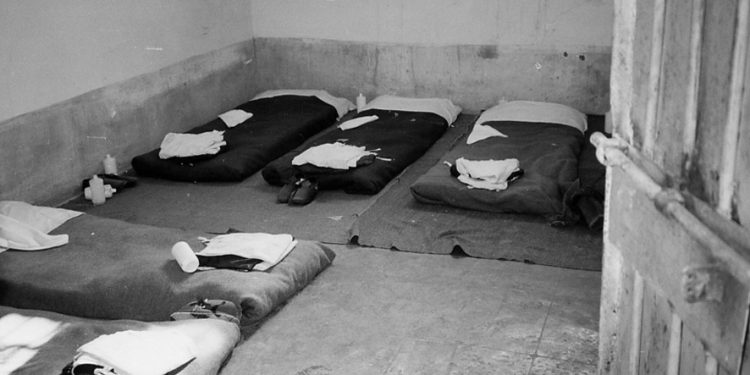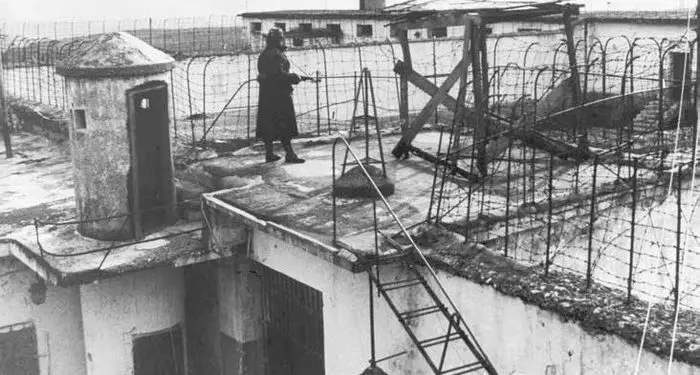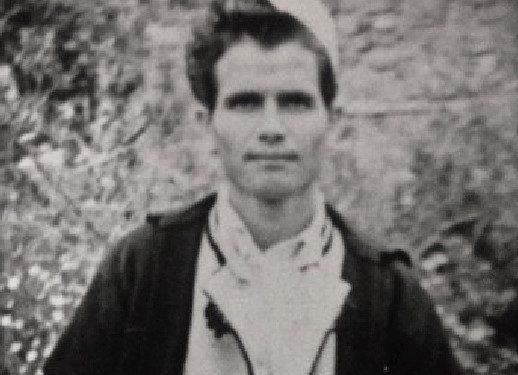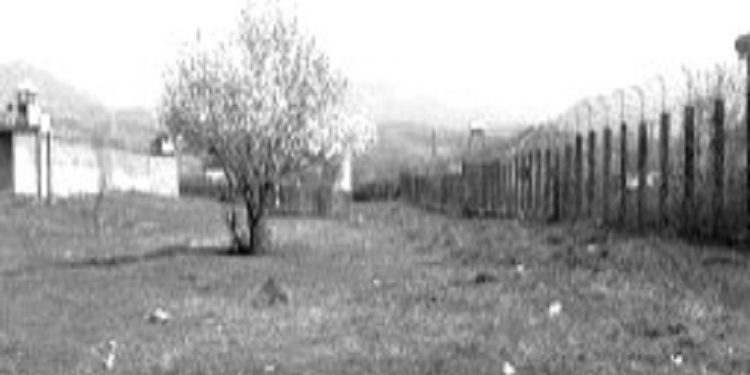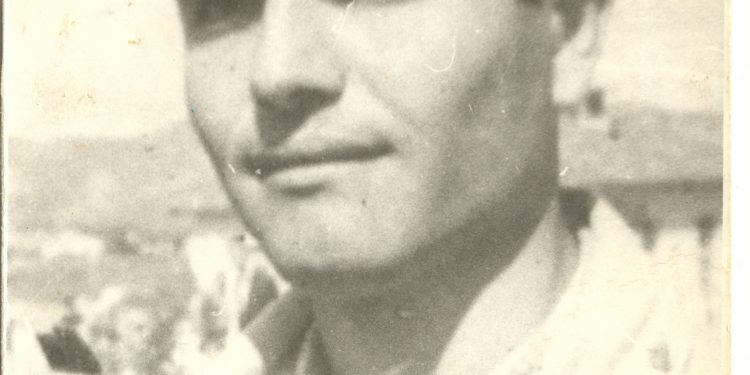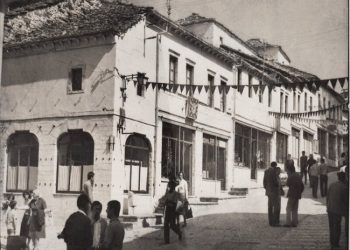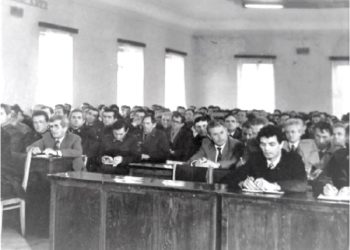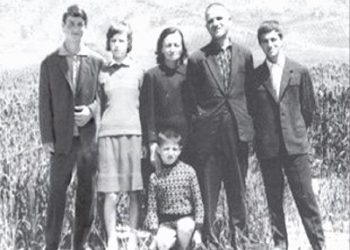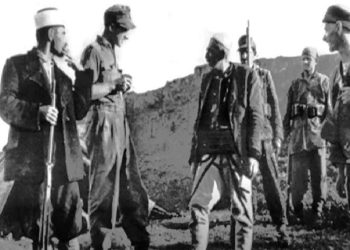By Uran Kalakulla
Part forty-four
Nazism and communism
Memorie.al / Nazism lasted 12 years, while Stalinism lasted twice as long. In addition to many common characteristics, there are many differences between them. The hypocrisy and demagogy of Stalinism was of a more subtle nature, which was not based on a program that was openly barbaric, like Hitler’s, but on a socialist, progressive, scientific and popular ideology, in the eyes of the workers; an ideology that was like a convenient and comfortable curtain to lie to the working class, to lull the sharpness of intellectuals and rivals in the struggle for power.
One of the consequences of this peculiarity of Stalinism is that the entire Soviet people, its best, capable, hardworking and honest representatives, suffered the most terrible blow. At least 10-15 million Soviets lost their lives in the torture chambers of the KGB, martyred or executed, as well as in the gulag camps and others like them, camps where it was forbidden to correspond (in fact they were prototypes of the Nazi death camps); in the mines in the ice of Norilsk and Vorkuta, where people died from cold, hunger, from crushing labor in countless construction sites, in the exploitation of forests, in the opening of canals and during transportation in lead-lined wagons, or in the flooded barns of the death ships.
Continued from the previous issue
However, in our painful history, full of tragic scenes and the darkness of centuries of black slavery, the Albanian genius still left behind, until today, if not an uninterrupted stream of light, like a comet, at least, from time to time, sparks full of living light, like the stars of a distant constellation, hidden somewhere deep in the cosmic darkness. Perhaps such a star, if he had lived and had had the conditions to develop further, would have been, without a doubt, the martyred boy, Mustafa Bajraktari. But he was imprisoned because he wanted light and freedom, like many other young people whose youth and life fled to the cold and dirty corners of prisons, the canals of labor camps or before the firing squads.
And today, the communists and those who follow them, have their mouths open and say that former political prisoners have no culture, are not worthy of responsible jobs, leadership positions! Only the sons of the nomenclature, executioners and those who, with filthy servility, followed the cannibal monster, with hosannas and festive drums, greedily licking a bone, as the master throws from his table, where the fat licks, to his faithful dog that dragged him at his feet.
Mustafa Bajraktar’s life was short. Can the light of a torch survive for long in the middle of a long winter downpour that leaves behind floods, misery, death? He was born into a simple and honest family from Tropoja. Still quite young, he had been destined, as an exile, to live in the mud of Myzeqe and there to attend secondary school, in one of those village schools, where even if there were books, apart from the school ones, there were only the “party agitator’s notebooks” or the “works” of the dictator.
But Mustafa, thirsty for knowledge like parched earth for rainwater, constantly sought among his father’s friends and associates, something that would come close to his preferred food for the soul, free and true thought. So also from artistic literature, from a translation of Balzac or Hugo, he diligently sought out where there was light of thought and not sentimental scenes of eroticism, even though he was young. And step by step, like an ant gathering food, he had gathered his spiritual “reserve” and cultivated, as a hardened autodidact, that outstanding inner world that fate and God had bestowed upon him.
It seemed that his mountain genius, the genius of the true Albanian race, had inherited something mystical from the legends and myths of our Alps, where rhapsodes are born with their epics, where the steep heights of the mountains challenge the sky, where perhaps even now the classical pagan gods wander. Was it here that he found his outstanding inclination for philosophical research and his adoration for the genius of the thoughts of ancient Greece? Mustafa and I often walked together in the narrow and gloomy courtyard of the Burrel prison. He loved and trusted me, as I loved and trusted him. We were not at all in the teacher-student relationship, despite the age difference.
We were simply good friends and almost friends. And I can say with legitimate pride that I was his favorite among the intellectuals in that prison, with whom that rare boy sat and talked in confidence. To be fair, we didn’t talk much about politics with him, because, as I said above, he was more interested in political theory, doctrines, and especially tried to delve into the criticism of the so-called “scientific socialism”, that is, Marxism, than in the facts of the day and the comments about them. And from there he got the excuse to then attack where his “weakness” was.
I had lent him some philosophy books, which I kept like the back of my hand. Among others, I loved the voluminous book by the well-known Italian anti-fascist author, the well-known pre-war professor, Guido de Ruggero: “Folosofi Del Novecento”, as well as his other monograph, as an appendix to this book “L’ esistenzialismo”.
They were valuable books, which I still jealously guard today, but the wonder was that the young man, who had just finished the “Alge” method for learning Italian, a very simple and short method, began to absorb Italian by reading philosophical prose in Italian, which, in my opinion, is much more difficult than in French and English, because the Italian authors of that prose and of that time, apparently, because they had a pronounced classical education, used a classical Italian, with a Latin syntactic structure, without counting the terms of the philosophical dictionary.
He very quickly created a very accurate vision of the age and conditions of that time, of the great themes of the entire history of philosophy, of the schools and systems, and had already created his own preferences for the authors of these schools. He spoke with particular admiration of the subtle intuition of Spinoza’s thought, of pantheism, just as he spoke to me with enthusiasm of the dialectics of Heraclitus and Hegel, or with contempt of the materialism, vulgar and primitive, according to him, of a Helvetius, Avenarius or Holbach. But even in this he mainly chose Kant and I can say that he had fallen in love with him, as far as he knew from Kantian philosophy about the interpretation of the Universe and about the work “Critique of Pure Reason”.
Speaking about the philosophy of history, to which I gave special importance at that time, apparently because I wanted to oppose the theses of Marxist historical materialism (as much as I could), Mustafa, after talking to me about the Hegelian exposition on the cyclical development of human history, strongly liked to dwell in more detail on the philosophical explanation of the existentialist Jaspers in this field, who, as is known, gives primary importance to the problematic understanding of history.
The wise young man explained to me in his own words Jaspers’ theses, that the darkness of the past and the future weighs on the present and that in our time, there is a pronounced tendency towards democracy, with all its components: more freedom and social equality, the condemnation of any kind of dictatorship, especially communist, the exclusion and denial of any imperialism, general peace, further encouragement of the development of science, but avoiding in every way the fetishization of the machine, over which man must definitely be the master, and, taking particular care to avoid in this midst, the deficient spiritual development of humanity.
And the young man then continued with the thesis, perhaps not very democratic, of Kierkegaard, which says that the truth lies in the conscious minority, while the majority often clings to illusions and does not have their own original opinions. Mustafa Bajraktari was a well-formed and determined anti-communist. He called communism the greatest disaster in the history of mankind, even the cataclysm of the modern era. He despised it more than the barbaric evasions of the Mongol Genghis Khan or of an Attila; he sometimes called it the plague of the twentieth century. He said that Lenin had desecrated Marx, just as the latter had desecrated Hegel, and almost as Stalin had betrayed Lenin and Trotsky together.
As for the Albanian dictator, he did not like to talk at all, because he had heard about his mean and deformed character as well as about his homosexual adventures and being a gigolo. I remember that he once said: “If Lenin is savage as a Mongol, in his Asiatic morality, Enver Hoxha is savage in his mean Western immorality. This seems like revenge on the virtue, which he never managed to have”! While still a high school student, before his graduation, he escaped and crossed the border. But the UDB, when it realized where the smart and courageous young man was headed, turned him back across the border and handed him over to its sister agency, the Albanian State Security.
While in the Spaç camp, in a deep gallery, he dug a hole and, after digging it further for days, in the greatest secrecy and alone, he went beyond the wire fence and fled back towards the border, with the plan that this time he would not surrender alive to the Yugoslavs but, clandestinely, to cross the entire foreign country, to the Italian border, near Trieste, to cross to his beloved West and so that he could realize his great dream of a complete education in one of the world’s well-known universities and in the libraries of cultural places. But they caught him again, without crossing the border, always by treachery. And they brought him to the Burrel prison.
Recently he had begun to lose hope. The savage and long-lasting violence, the hunger, the poverty, the despair of the entire people that was also reflected in the prison, became like a heavy overlay on his very sensitive conscience. Thus, pessimism and despair began to take hold of him. Little by little, gloom took over his soul and in that midst, the ominous philosophy of the Cyrenaican Egezia (4th-3rd century BC) began to have a real effect, who preached that to escape pain and suffering, the only way was to deny life, to seek death at all costs, as liberation from all evil. Not in vain, that wretched philosopher, who in his time, was given the deserved nickname “the counselor of death”.
One day, when we went out for airing as usual, I didn’t see Mustafa. I asked the others and they shrugged. The boy, with torn pieces of bedsheets, had made a rope and hung himself from the bars of the room’s window. When we went inside, we found him dead. The guards took his frozen body outside, to bury him we don’t know where. And he is one of the many victims with a lost grave.
If his grave were found, on his marble slab, below his name and photograph, I would carve the final words of Kant’s work; “Critique of Practical Reason”, which say: “Two things fill my soul with adoration: the deified sky above and the moral law within me”! Sculptural words, which show exactly the essence of the rare being of that special boy, with a simple name: Mustafa Bajraktari! May his name and memory be eternal, for all of us fellow sufferers!
Avzi Nela
Avzi Nela and I had known each other for ages in the prison camps of our shared exiles. At the time, he was a boy in his thirties, but the strange thing was that his hair had started to turn gray, as if he had passed fifty. Of average height, he was somewhat stout, but not weak. Even if you noticed his face, always with red cheeks, you would believe that he was in good health. But what impressed you about him were his eyes. They were eyes of a rare feature, long eyelashes like a child’s, blue eyes, full of brilliance, which clearly expressed an infinite kindness of soul.
You could rarely see those eyes gloomy, sad. And I wondered how it was possible in that damned wicked place where we were, in the name of violence, in that man’s eyes I never saw gloom, gloom, as the sky darkens when a storm with torrential rain is preparing. Avzi Nela was from Kukës. For the people of Kukës, since childhood, I had a special kind of sympathy. Because I had known them as woodcutters who came to Tirana in the winter to cut firewood, or they sold candies, peppers, popcorn, sugar apples, bozë and salep. Hardworking, silent, polite people who did not disturb anyone, but only watched their work.
Even in the prison camp they were like that and when I tried to enter their spiritual intimacy, I found there purity, simplicity, a special kind of naivety, which was cooked with trust in others and the almost complete exclusion of deceit, fraud. It seems, like the classic highlanders that they were, diligent and skilled herders, they, by closely connecting with nature, had taken its features to cook their traditional spirit, the resistance of the mountains, the softness of the meadows, the whiteness of the snow on the ridges, the bleating of the cattle, the tranquility of the plateaus where the pastures stretched.
And having grown up in these mountains, they seemed to have acquired the endurance and patience of the rock that is not affected by frost and frost, or by the torrential rains, or by the roar of the torrential streams. It seemed that in the souls of those highlanders, the pastoral fiddles, mixed with the tambourines of the drums, had merged into one folk lyric and epic. The Kukësian dances are the clear expression of the epic, this poetry of bravery, which resemble the fight of the Albanian with the wolf, while the lyric of the fiddle brings the echo of the girls who weave flower necklaces in the spring, who sew and embroider their own or the boys’ xhamadans, with all those other ornaments and ornaments.
The Kukës region, as we know from history, has always been a fortress of national freedom, against the Turks, against the Serbs. And especially against the latter, throughout the end of the nineteenth century and throughout the twentieth century. And I have the impression that many Serb chauvinists have left their lines on the Kuksian path. Avzi Nela had this epic-lyrical spirit in his soul. I can say with all my heart that during my entire long imprisonment, in various prison camps or in the Burrel prison, I did not dictate to any Kuksian, even the uneducated one, to degenerate into a spy, gambler, homosexual, thief, intriguer, brawler, etc.
Thus, I have remained in my conscience a respect and even a love for the entire people of this region. But, may his fellow-provincers forgive me, because first and foremost I cherish this respect and honor for one of their best, for my fellow sufferer, but my dear friend, Avzi Nela. I do not remember well in which prison camp I first met Avzi. But, anyway, from there we got closer and started our conversations, the main topic of which was both the misery of the time and hope, and why not even faith, for a bright perspective, for a white day. And literature often entered into this mix, for which he was seized with a special passion.
But his concept of literary art was not so much its aesthetic function, but its educational one. Thus Avziu was a very loyal follower of the literature of our Renaissance, where patriotism is, as is known, its main theme, its mission. For Avzi Nela, Naim Frashëri was the spiritual brother of Fishta, these two brothers who formed the main pillars of the nation. And only after them came Çajupi, Mjeda, Noli, Konica, Asdreni, etc. Almost, this constellation of Albanian letters, in Avziu’s consciousness, had the architecture of the Olympus of ancient mythology where, for comparison, Apollo should have been Naim, Marti-Fishta and the others after them. But at the top of the heavenly throne stood, without question, like Zeus, only Skanderbeg! Here, this was Avzi Nela’s religion.
He had been, like me, a teacher. He had completed the two-year Pedagogical Institute, I think by correspondence (I don’t remember, in Tirana or Shkodra), with the sole intention of becoming a teacher, a teacher of language and literature in his region. Thus, his passion was to instill in the souls of children exactly the same patriotic fire that burned in his own soul. And after that, or simultaneously with that, of course, to build the souls of the Kuksi Chamarrok people with the healthy and epic morality of our mountains, with its three main norms: loyalty, manhood, generosity. Without these norms, the true spirit of the Albanian could not survive, it would be defiled, it would weaken, it would turn from morality to immorality.
And seeing that with “socialist education” everything was being spiritually subverted even in the younger generation, he had decided to create a serious resistance, although silent, somewhat disguised, to a very dangerous epidemic that was spreading with such deafening noise and din. But, when the teacher professed this sound classical Albanian morality with his students, how would it be possible that outside the classroom, in his village or, in the teachers’ collective or in his society, he could pretend otherwise, could he be silent, become a vuv, that is, a deaf-mute, a hypocrite? And so his natural fall into prison.
Yes, he had been imprisoned exactly like a missionary of religion, who not only defends the faith from the lackeys of atheism, these banal and disgusting blasphemers, but continued to praise God, even when he saw that the rabid dogs of the State Security were gnashing their teeth around him, ready to tear him alive. Memorie.al




